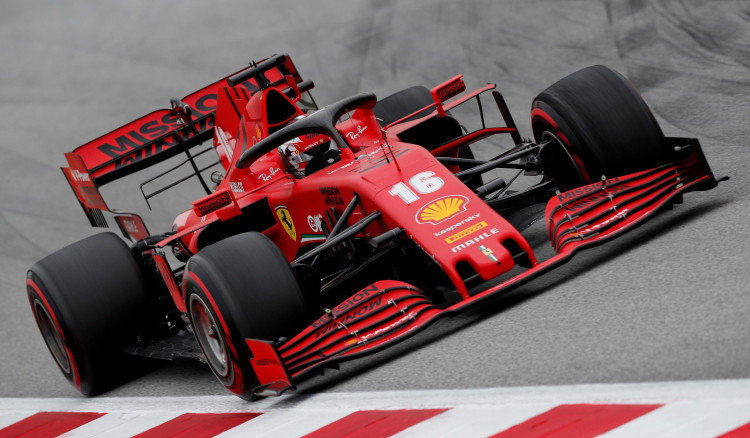Over a quarter of Ferrari's new and pre-owned car buyers in China are women, a significant increase compared to other global markets. Despite previous comments from Ferrari's top brass that there would be no special designs targeted towards women, insiders report that in the last five years, female consumers have contributed to 26% of Ferrari's sales revenue in mainland China, notably higher than other regions.
CEO of Ferrari, Benedetto Vigna, shared that in recent years, there has been a growing enthusiasm from female clientele towards the company's products. There's a surge in women signing up for racing training and other company-sponsored events. Those lining up for the Italian supercars in China include top executives from the tech industry, real estate tycoons, and ultra-wealthy magnates.
According to Bloomberg's Billionaire Index, China ranks second globally in its number of billionaires, just behind the U.S. Dominating Asia's list of wealthiest women, many of China's female moguls are self-made, such as Wu Yajun, founder of real estate giant Longfor Group, Zhou Qunfei, founder of Apple phone supplier Lens Technology, and Gu Xiaoqing, an executive at fast-fashion powerhouse SHEIN.
Per Ferrari's annual report, sales in China have nearly doubled over the past five years, with about 1,600 units sold last year, making up 12% of global sales. As luxury import tariffs impact China, Ferrari is aiming to maintain its deliveries to the country at around 10% of its global shipments.
For years, Ferrari executives have been trying to grab the attention of female consumers in China. Back in 2010, Ferrari's deliveries in the region were only a seventh of what they are today, yet the then-CEO, Amedeo Felisa, stated that one-fifth of sales came from female buyers.
Interestingly, Ferrari isn't catering to traditional female preferences to boost sales. In 2020, the company launched the entry-level four-seater ROMA. The design of the ROMA, in contrast to other products in Ferrari's lineup, was softer and more curvilinear. At the time, some speculated it was "for women only."
However, the company's Chief Marketing and Commercial Officer, Enrico Galliera, debunked this notion in an interview with "Arabian Business," asserting that Ferrari wouldn't design cars specifically for women, and no amount of money would get you a pink Ferrari. In a light-hearted remark, he said certain colors just shouldn't be on their cars. He believes that women wouldn't necessarily want a "female Ferrari," and producing a gender-specific model could backfire, possibly pushing male consumers to other brands. That being said, Ferrari has not overlooked its female clientele. Galliera shared that events where couples are invited have resonated well with women, even without gendered products.
Ferrari isn't the only ultra-luxury car brand recognizing the economic rise of women. Earlier on, Aston Martin's research revealed a preference among women for SUVs, launching the DBX model with hopes of attracting this demographic. Porsche, in 2016, signed tennis star Maria Sharapova, their first female ambassador.
However, luxury carmakers should tread cautiously with their female-targeted marketing. A UK-based Aston Martin dealership once organized a "Ladies' Day" offering Estée Lauder makeup classes post-test drives, which some invitees criticized as "patronizing charity." The critique suggests that globally recognized brands like Aston Martin, when marketing towards women, should be forward-thinking rather than being rooted in antiquated gender norms.
Currently, luxury consumption in China is on a steady rise, promising expanded opportunities for ultra-luxury car brands. Consulting firm Bain & Co. estimates that this year, Chinese consumers will account for 20% of the global personal luxury goods market, a figure projected to climb to 38% by 2030.





